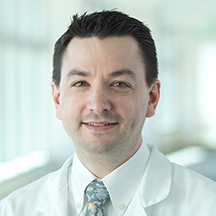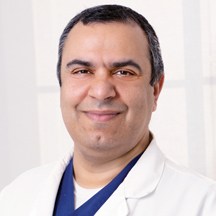
Treatment for Spine Tumors at Pacific Spine Health Center
by PNI Experts
Spine neurosurgeon, Jian Guan, MD, discusses the signs, symptoms, and treatment for spine tumors at the Pacific Spine Health Center. Discover why the spine is the most common location for metastatic diseases, and learn how to protect your spine health after surgery.

The spine is one of the most common locations for metastatic cancer. Metastases, or the development of secondary malignant growths at a distance from the primary site of cancer, travel to other parts of the body via the bloodstream.
The spine has a very large blood supply, making it a common site for metastases to grow from other parts of the body. When a cancer cell escapes from a malignant tumor, it travels through the body via the bloodstream, often passing through the spine. When this happens, it can deposit and create a cancerous growth in the vertebrae. In fact, the most common type of spinal cancer originates from other parts of the body.
Fortunately, the majority of spinal metastases do not compress the nerves of the spinal cord, causing fracture, and can be treated non-operatively using radiation.
Rarer tumors of the spine, however, are much harder to treat. These include tumors that come from nervous structures, such as peripheral nerves, and meningiomas, which develop from the covering of the spinal cord and grow within the spinal cord itself.
What are the symptoms of a spine tumor?
Identifying the symptoms of a spine tumor is the first step to ensuring immediate care. At Pacific Spine Health Center, our team of highly specialized and experienced neurosurgeons employs state-of-the-art magnetic resonance imaging to diagnose both benign and malignant spinal tumors.
The symptoms of a spine tumor include:
- Back pain
- Constipation
- Urinary retention
- Bowel or bladder problems
- Muscle weakness
- Paralysis
- Sensory loss
If you are experiencing symptoms of a spine tumor, don’t wait. Take control of your spine health today. Learn more about identifying symptoms of a spine tumor.
What are the treatment options for a spine tumor at PNI?

Knowing your spine tumor care options is critical for improving and maintaining your quality of life. At Pacific Spine Health Center, neurosurgeons work with each patient to develop the optimal treatment plan for their spine health.
Once a spine tumor is diagnosed, surgery is determined by the type and location of the tumor. Our neurosurgeons are trained in the most complex neurosurgical spinal surgery cases, employing minimally invasive procedures, including computer guidance, kyphoplasty, and cervical disc arthroplasty.
The majority of spine tumor cases are treated with either a microsurgical resection or a laminectomy, a surgical procedure that removes a portion of the roof of the spinal canal. In some cases, however, the complete removal of a spinal tumor may not be possible. In these instances, radiation or chemotherapy may be needed.
By putting our patients first, our team is dedicated to ensuring that you and your loved ones receive the highest quality of care and are prepared with the tools you need for a successful recovery.
Protecting your spine health after surgery
One of the most common misconceptions about spine health is that issues of the spine tend to be thought of as acute, or fixable. But we need to rethink our approach to spine conditions as long-term health issues, like diabetes or high blood pressure.
Changing our mindset about spine health may better us help navigate the road ahead. This includes taking care of your spine health after surgery. Embracing a lifetime commitment to protecting your spine health, may prevent future complications, explained PNI’s Jian Gian, MD, a fellowship-trained spine neurosurgeon at the Pacific Spine Health Center located at Providence Little Company of Mary in Torrance, CA.
Here are a few ways to protect your spine health after surgery:
- Practice good posture
- Stay active
- Maintain a healthy weight
It is important to recognize that recovery from spine surgery is different for everyone. Some patients may temporarily rely on pain medication after surgery, while others may rely on pain medication long-term.
“As surgeons, our job is to help you hone in on what is causing the pain and try to advise you in what we can do about it.
Jian Guan, MD, Spine Neurosurgeon at PNI-South Bay in Torrance, CA.
About Pacific Spine Health
At Pacific Spine Health Center, we believe a successful surgery involves more than the technical aspects of the procedure. We provide educational sessions to teach our patients how to best prepare for surgery and aid the recovery process post-surgery, including proper nutrition and optimization of physical health. We offer highly advanced minimally invasive procedures through a variety of techniques including computer guidance, kyphoplasty, and cervical disc arthroplasty. Our approach limits tissue disruption and speeds recovery by reducing pain and maintaining the motion of the spine when possible.
Pacific Spine Health Center Locations

The Pacific Spine Health Center’s state-of-the-art facilities are located at:
Providence Little Company of Mary Medical Center Torrance
5215 Torrance Blvd, Torrance, CA 90503
424-212-5361
Providence Saint Joseph Medical Center
501 S Buena Vista St, Burbank, CA 91505
818-847-6049
Meet the Spine Team
About the Author
PNI Experts
Last updated: August 9th, 2023



